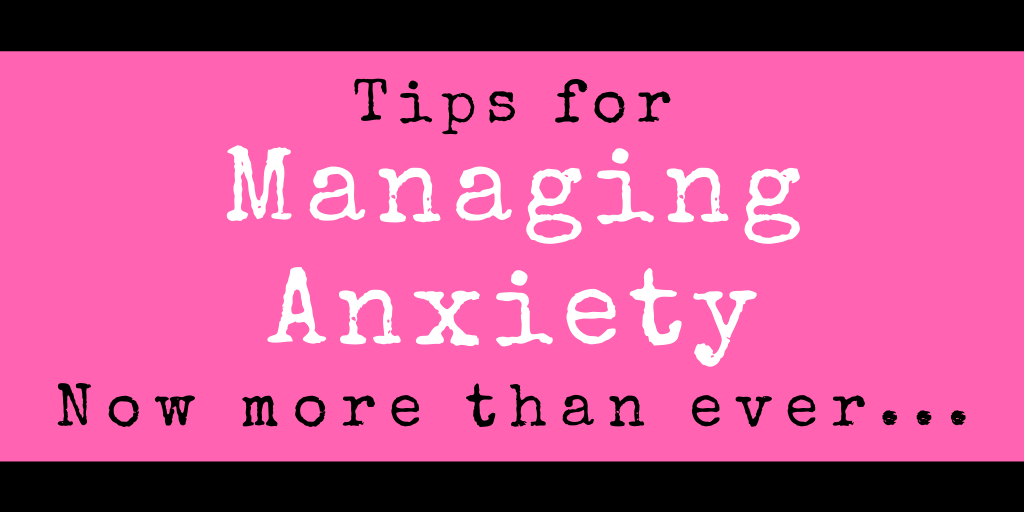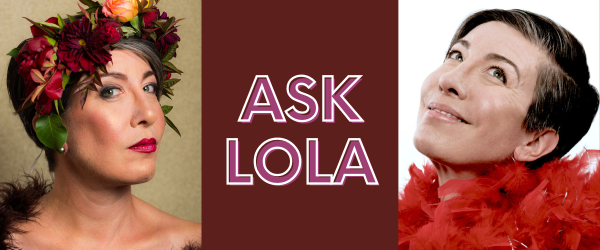Safe to say, most if not all of us are experiencing a broad range of difficult emotions during the Coronavirus pandemic era. At the same time, we’re having to cope without many of our usual outlets to self-soothe, recharge and take our mind off the state of the world. Many of us have spent months on end in some combination of isolation or being cooped up with others, missing out on so many of our daily comforts. Self-care is especially necessary in this moment.
Last month, I talked about mitigating anger and irritation. This month, I want to focus on managing acute anxiety and feelings of dread. Here’s my best advice on calming yourself when panic threatens to overtake you. Also, if it helps you to listen to these words rather than read them, head on over to Soundcloud, where I read a modified version of these steps out loud.
Notice what you’re feeling
The first step to confronting anxiety is acknowledging it. We often try to ignore our worries by obsessing, over-consuming or hypnotizing ourselves online for hours. Checking out only worsens feelings of paralysis and powerlessness though.
Try saying aloud: “I feel super scared and wound up right now.” Acknowledging your fears won’t make them more real—quite the opposite. It helps bring you back into the present moment.
Realize that your brain is playing tricks on you
If you’re in a panic mode but facing no immediate danger, your mind is outrunning reality. Say to yourself: “I am safe in this moment. I am healthy and whole. These feelings will pass.” Acknowledging that our brains are in hyperdrive can help free us from any pressure we put on ourselves to “just get over it already.”
Use positive self-talk
Oftentimes during panic attacks, self-hatred tags along, fueling all those hideous whispers inside our heads telling us we’re no good. I call those voices “hate radio.” Talk to yourself with the same compassion you’d show to your lover or very best friend. Say, “This feels terrible right now, but I’m going to get through to the other side very soon. I don’t let fear rule my life.”
Breathe deeply
We tend to take shallow breaths when we’re scared, elevating the body’s stress hormones. Breathing deep from the diaphragm activates the relaxation response of the parasympathetic nervous system, calming the adrenaline-fueled fight/flight/freeze response of the sympathetic nervous system.
Slowly inhale to a count of three, filling your belly first, then your chest. Gently hold your breath while counting to three, then slowly exhale to a count of three. Repeat as often as needed, until you feel your body soften.
Visualize a calming situation
Close your eyes and imagine yourself in a peaceful spot out in nature sitting in a park or by the beach. As you inhale and exhale, imagine that any thoughts or emotions that come into your mind are like leaves blowing on the wind — notice them, but let them go right on by. Just observe — don’t judge or fixate on them in any way. This practice of acknowledging feelings without engaging them can be very powerful.
Reconnect with your body, focus on the here and now
Clenching an ice cube, snapping a rubber band on your wrist or curling and uncurling your toes are somatic techniques to get you out of your head and back into your body. Focusing on the present moment will improve your ability to manage your circumstances.
Question your thoughts
When we get worked up, all kinds of horrible future scenarios can ricochet through our brains. Once your body and mind have calmed down for a few minutes, try challenging your worries with these scripts:
— My anxious reaction is out of proportion to the reality of the situation.
— No matter what happens, I am safe and strong and can handle it.
— I have loved ones who can listen, soothe, help, and provide perspective.
Listen to your body
After an anxiety attack, it’s common to feel wrung out and exhausted; give your body the rest it needs to recover. Or, if you’re still feeling ramped up and have excess adrenaline to burn off instead, working out, taking a long walk or sex can be grounding, bringing body and mind back into balance.
Get some help
Finally, it’s okay to tell your loved ones that you’re not okay. We all need extra help sometimes. Don’t be afraid to reach out for support from family and friends, and if you need someone one professional to talk to, check out my mental health resources at LolaDavina.com/health-resources.
Eckhart Tolle once wrote, “Worry pretends to be useful, but serves no useful purpose.” If anxiety isn’t serving you, I encourage you to let it go.
Until next time, be sweet to yourself.
Lola D.

—
Lola Davina is a longtime veteran of the sex industry and author of Thriving in Sex Work: Heartfelt Advice for Staying Sane in the Sex Industry, a self-help book for sex workers available at Amazon, Barnes & Noble, iTunes and wherever else ebooks are sold. Get the audiobook version here. Contact Davina at Lola.Davina@ynotcam.com and visit her on Twitter at @Lola_Davina, as well as on Facebook.
Image of Lola Davina courtesy Pat Mazzera.











[…] Next is to remember why you chose to share what you did. The desire to be seen and accepted just as you are is key to living an authentic life. Congratulate yourself on your emotional honesty, and be sure to self-soothe. I offer practical advice on how to manage overwhelming emotions here. […]
[…] Take steps to self-soothe. Deep breaths, positive affirmations, and other anti-anxiety techniques are excellent […]
[…] favors running off half-cocked, however. Take a few moments, do some deep breathing exercises, and self-soothe. In the days and weeks that follow, make sure to take care of your physical and mental health. Eat […]
[…] Self-soothe I encourage you to take several deep breaths, gently stroking your chest or your belly or your thighs. Say a few comforting words to yourself, out loud or in your mind, such as: “I know you’re struggling right now, Sweetheart, but everything will turn out okay. This won’t last forever.” […]